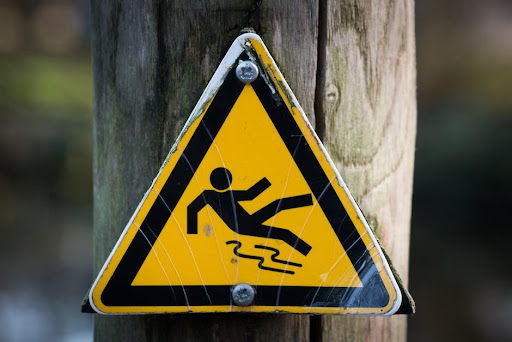A relapse prevention plan is an incredibly powerful tool that can help you when you feel tempted to use drugs or alcohol while in recovery. Sitting down with a therapist or another member of your addiction facilities staff to come up with a relapse prevention plan can help you when you are faced with choosing to use or not.
The truth is that most people who are in recovery will experience a relapse once or many times during recovery. And that is okay. It is part of the process, and it doesn’t mean you have failed or cannot get back on track.
Relapse Does Not Mean Failure
Just because you make a mistake or fall into temptation without resources in reach does not mean that you have failed at recovery. Relapse is not uncommon, but it doesn’t have to be the end of your sober journey.
What is that saying, “No matter how many times a baby falls down, they always get back up again and keep trying.” It is the same thing here. Just because you had a slip-up and used drugs or alcohol again, it doesn’t mean your life is over. It just means you have hit a bump in the road. And you need to get back on track right away.
If you do relapse, this is not an excuse to go off the deep end and binge. This should be a moment of clarity for you that you need to get back on track as soon as possible to prevent further damage to your journey. Reach out for support and reference your relapse prevention plan on how to get back on track.
Why Do People Relapse?
Relapse is a complex process. There can be personal and environmental things that influence someone’s mind to push them towards using substances again. That is why it is important to have a relapse prevention plan in place. When things happen or become overwhelming in your life, you have action steps to take to be successful.
- Lack of support: When you don’t feel like you have someone to turn to when you are having a rough time, it can be very easy to turn back towards substances to comfort you and calm you down during these hard times.
- Poor stress management skills: This can cause you to look towards substances to calm you down.
- Neglecting self-care: When you don’t take care of yourself, it can hurt your self-esteem, your self-worth, and your overall quality of life. This can lead you to turn towards substances to make you feel better.
How to Create a Relapse Prevention Plan
Taking the time to think about the ways relapse can occur can help you set yourself up for success. That way, if a time ever arises that you feel like you want to use, you can look at your relapse prevention plan and come up with steps you can take to keep your head on straight and stay sober.
Identify High-Risk Situations
The first step in creating a relapse prevention plan would be to think about high-risk situations that might be presented to you that may cause you to want to use substances. This can be things like:
- Hanging out with old friends who still use
- Going to social gatherings where drugs or alcohol may be present
- When stressful things happen in your life
- If you are feeling overly sad or depressed
- When you feel like you have no control over your life
These are just some ideas, but you know your situation best. Sit down and be honest with yourself. What types of situations might push you towards using drugs or alcohol?
Determine How to Handle Each Stressful Situation
In the moment, it can be very difficult to make rational decisions. Especially when the “addiction part of your brain” is talking to you. Due to this, it is important to take a look at all the high-risk situations you have listed. Then, decide what you would do in each of those situations if they were actually to happen.
Maybe you decide to go to a social gathering. However, when you get there, you realize that there is alcohol being served. What would you do? Would you decide to leave? Would you try to have a good time and avoid alcohol? Would it be too hard to be there if alcohol was present?
These are all the things you need to think about before you get put in one of these situations. Knowing how you would like to respond in these types of situations will help you become the most successful.
Practice These Situations
Sometimes when we get in the moment, we can do the wrong thing even though we know the right thing to do. Or maybe you will get nervous and not stand up for yourself. That is why it is important to practice saying out loud what you might say to someone if you were put in one of these situations.
Let’s use the example from above. You go to a social gathering where you didn’t know alcohol would be present, but you get there, and there’s alcohol. Maybe you would choose to leave. So get a trusted friend or family member, and ask them to run through a scenario with you. Practice saying, “Hey, man. I didn’t know alcohol was going to be here. It’s probably better if I just left. Would you like to come with me, or should I just head out by myself?”
Saying these things out loud can make it more comfortable when the actual moment arises. Sometimes we know exactly what to say. However, when it comes time to say it, we get nervous or anxious. Due to this, practicing will help alleviate some of that anxiety.
If you relapse, you might feel like you have failed; however, this is far from the truth. There have been people who have been sober for 20 years and have relapsed in a moment of poor resources and coping skills. Relapse is not the end. You can get back on track the moment it happens. In that moment, make the choice not to use drugs or alcohol anymore and reach out to your network for support. You can overcome relapse without it being the end of your recovery. Consider it a new beginning. If you or someone you love is struggling with addiction and needing support, call Buena Vista Recovery at (480) 741-9414.





